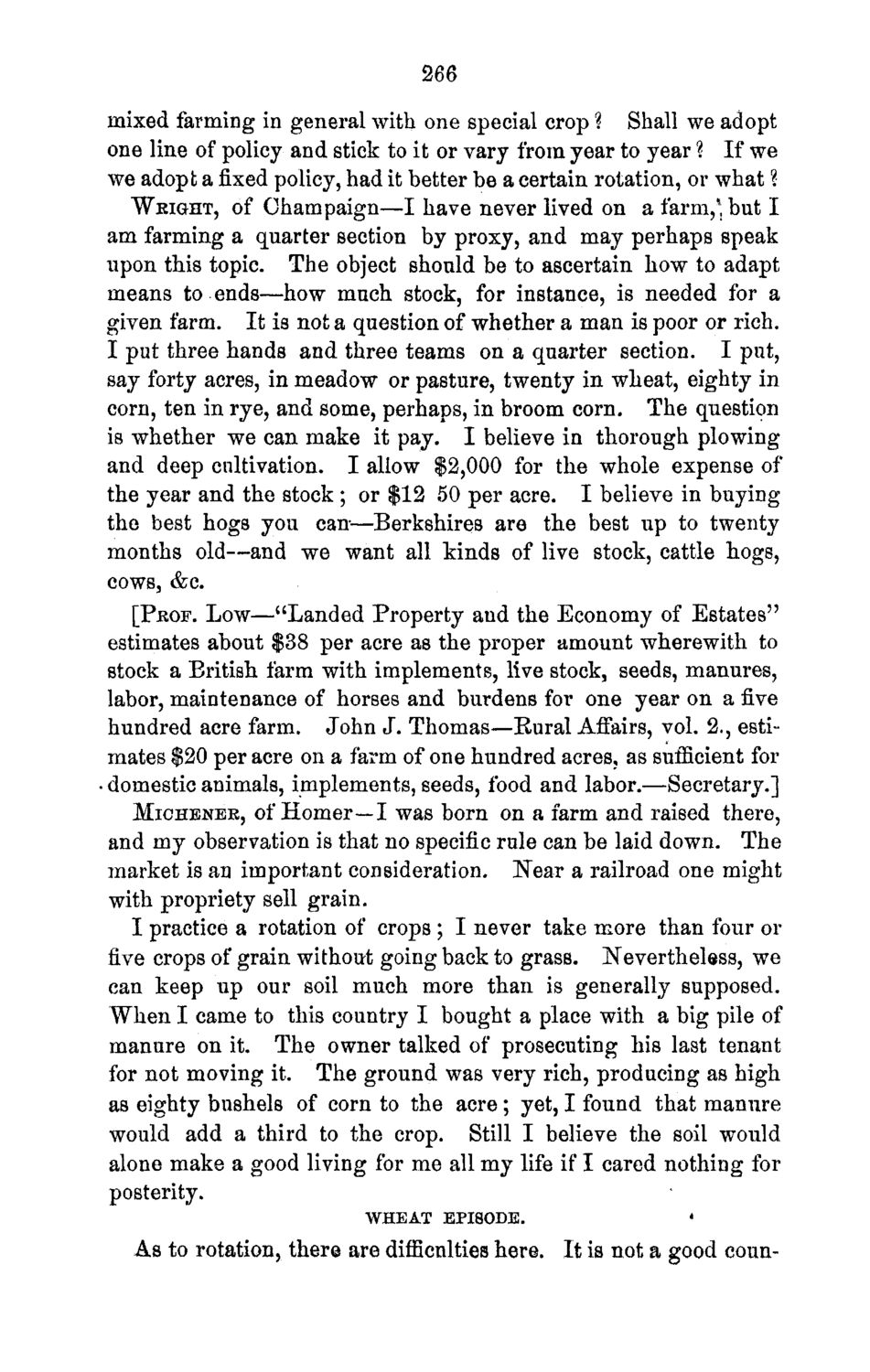| |
| |
Caption: Board of Trustees Minutes - 1870
This is a reduced-resolution page image for fast online browsing.

EXTRACTED TEXT FROM PAGE:
266 mixed farming in general with one special crop ? Shall we adopt one line of policy and stick to it or vary from year to year ? If we we adopt a fixed policy, had it better be a certain rotation, or what ? "WEIGHT, of Champaign—I have never lived on a farm,* but I am farming a quarter section by proxy, and may perhaps speak upon this topic. The object should be to ascertain how to adapt means to ends—how much stock, for instance, is needed for a given farm. It is not a question of whether a man is poor or rich. I put three hands and three teams on a quarter section. I put, say forty acres, in meadow or pasture, twenty in wheat, eighty in corn, ten in rye, and some, perhaps, in broom corn. The question is whether we can make it pay. I believe in thorough plowing and deep cultivation. I allow $2,000 for the whole expense of the year and the stock ; or $12 50 per acre. I believe in buying the best hogs you can—Berkshires are the best up to twenty months old—and we want all kinds of live stock, cattle hogs, cows3 &c. [PROF. Low—"Landed Property and the Economy of Estates" estimates about $38 per acre as the proper amount wherewith to stock a Eritish farm with implements, live stock, seeds, manures, labor, maintenance of horses and burdens for one year on a five hundred acre farm. John J. Thomas—Rural Affairs, vol. 2., estimates $20 per acre on a farm of one hundred acres, as sufficient for • domestic animals, implements, seeds, food and labor.—Secretary.] MICHENER, of Homer—I was born on a farm and raised there, and my observation is that no specific rule can be laid down. The market is an important consideration. Near a railroad one might with propriety sell grain. I practice a rotation of crops ; I never take more than four or five crops of grain without going back to grass. Nevertheless, we can keep up our soil much more than is generally supposed. When I came to this country I bought a place with a big pile of manure on it. The owner talked of prosecuting his last tenant for not moving it. The ground was very rich, producing as high as eighty bushels of corn to the acre; yet, I found that manure would add a third to the crop. Still I believe the soil would alone make a good living for me all my life if I cared nothing for posterity. WHEAT EPI80DE. « As to rotation, there are difficulties here. It is not a good coun-
| |